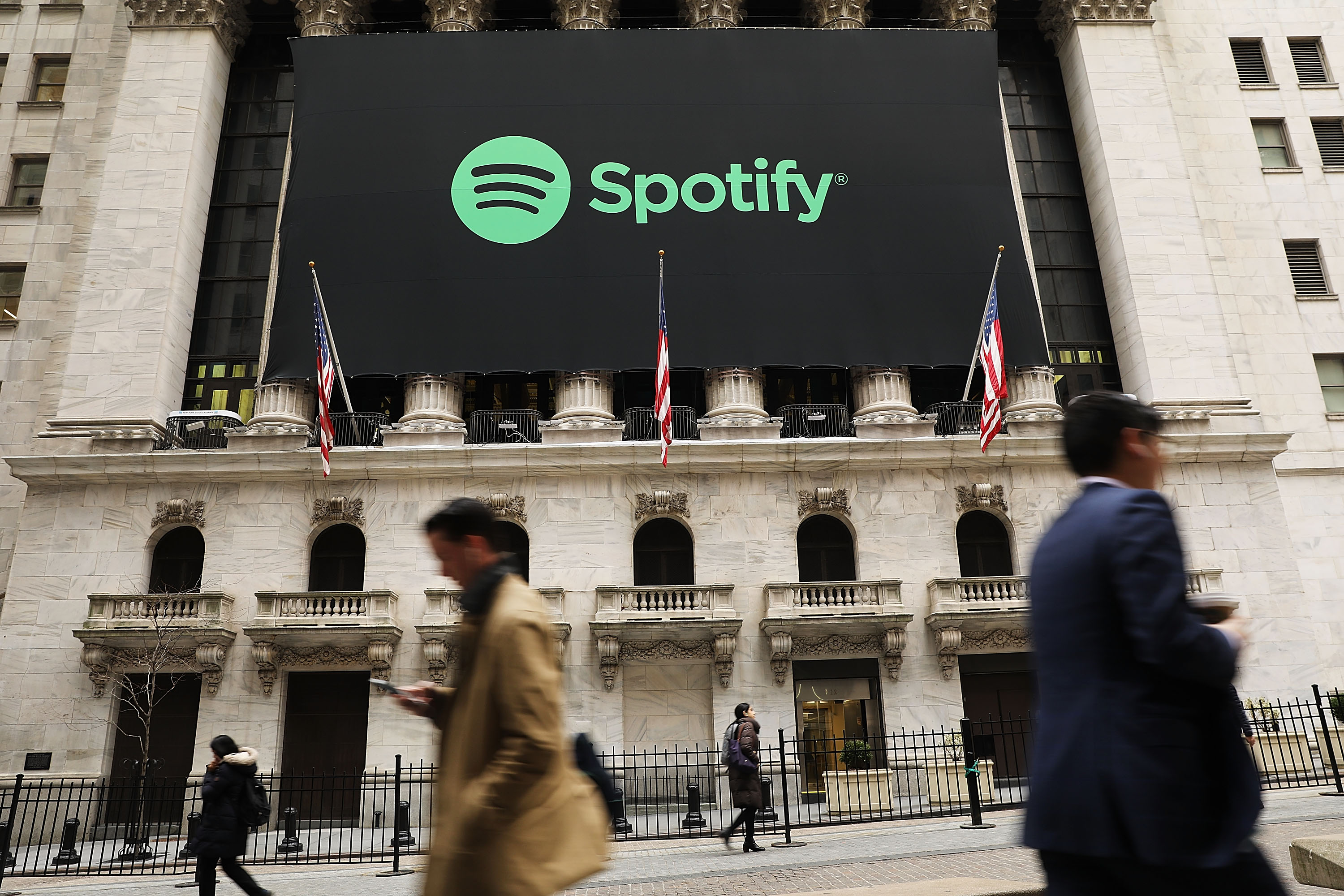Until now, when presented with a song they didn’t want to hear, finicky listeners and music aficionados have only had the option of repeatedly pressing the skip button or giving a digital thumbs-down to certain songs. But with Spotify’s new mute feature, music fans may finally have more power over who they listen to and what they stream.
Over the past year, Spotify, in conjunction with various civil rights advocacy groups, such as Color of Change, the Anti-Defamation League and GLAAD, has worked to develop new features in response to concerns regarding hateful conduct. When they first began considering the concept, back in August 2017, the music-streaming service originally focused on banning white supremacists. At the time though, Spotify balked on the censorship policy because they faced challenges in creating a system with language that was specific about which artists and songs would be blacklisted for poor conduct.
Recent protests surrounding R. Kelly, which have resulted in his being dropped from labels like RCA Records, as well as those surrounding other predatory musicians, have reignited the drive for censorship and fueled the movement toward a mute feature. The #MuteRKelly movement has expanded into a nationwide movement, and though it might not be the only factor in Spotify releasing the mute feature, it highlights the power of listeners to demand action from the music industry.
The mute feature allows listener to block an artist, so that songs from that specific artist will never play on the individual’s personalized Spotify features, including the library, various playlists, charts and radio stations. With this new feature, listeners have the ability to remove artists from their own Spotify account and prevent future track plays. In the top right settings of the latest Spotify update on the artist’s page is now the added feature of “don’t play this artist.”
Although some laud the update as a great feature and are relieved to block certain artists for one reason or another, the feature is still very new and there are some disadvantages to using it. For instance, though the innovation allows fans to mute artists they dislike, tracks that feature the artist as a guest will not be muted.
If you were trying to avoid R. Kelly’s music given his recent fall from grace, you would need to steer clear of “Do What U Want” by Lady Gaga yourself, as it would not be blocked, despite it featuring vocals from the alleged sex cult organizer. For fans who want all evidence of an artist they do not support gone from Spotify, this is an oversight.
Another issue is that despite operating under the guise of giving the power to choose to the public, Spotify is not taking any further action (yet) beyond the mute feature. As a result, musicians like R. Kelly are not really being held accountable by streaming services; Spotify et al have just found a clever way to pass the buck under the semblance of granting listeners more authority.
Still, the mere introduction of a mute feature is a major step for Spotify in addressing the needs and wants of its fans. The empowerment of a single listener through the mute feature can send a collective message to artists and record labels that says, “I don’t support this artist and I will not allow this artist or label to continue profiting through my streams.”
For labels with A-list celebrities that feed controversy, the power of losing public streams could hold artists more accountable. The beauty of streaming services is that they depend extensively on a dedicated fanbase, and the loss of fans and listeners not only translates into a loss of support and respect, but also a loss of profit. And if there is one factor that will never fail to motivate corporate action, it’s threatening their revenue stream.
Opening Spotify today, after downloading the 8.4.91 update, felt strange. I expected that certain playlists that I chose would be rife with artists that I didn’t want to listen to, and I would spend most of my time “thumbs-downing” or endlessly skipping songs. Instead, it felt eerily direct as I opened the search bar and thought about the most controversial musicians that I personally would rather not listen to.
It felt weird, and a little petty, to sit for a few minutes and think about which artists I had recently seen in headlines or knew for their problematic behavior, but with a few swift swipes those artists were gone.
As I watched the follow button disappear from their pages, I was left with with the surprisingly pleasant feeling of being so effortlessly removed from the controversies of modern music.
















